
The Running Hope
Twins tend to be identical in more than just looks: there are similar habits, speech, attire, and even moods. Dima and Lama Hattab are twin sisters who are identical in passions as well. Wajih Halawa jogged up a sweat with the champion runners to talk about their ambitious charity project, Children's Hope Middle East.
Not many athletes begin their careers towards the end of their high school years. In fact, some actually retire by the time they are in university. Not so with the Hattab twins, who started running in 1998 as they entered their Tawjihi year, a very unusual commencement. Dima and Lama originally began with short distance races, enduring teases from their coach that they would soon be running marathons.
 After a lot of encouragement and motivation, the two sisters entered the Dead Sea Ultra Marathon in 1999. With their first half-marathon participation, Lama and Dima placed third and fourth respectively. This success encouraged them to go further, training to run marathons secretly with their coach, who was only allowed to train short distance runners. While Jordanian instructors and trainers remained skeptical of their "excessive enthusiasm", Lama and Dima shot back in 2000. In the "Dead Sea Ultra Marathon", Lama won the marathon while Dima took it a step further, winning the ultra-marathon.
After a lot of encouragement and motivation, the two sisters entered the Dead Sea Ultra Marathon in 1999. With their first half-marathon participation, Lama and Dima placed third and fourth respectively. This success encouraged them to go further, training to run marathons secretly with their coach, who was only allowed to train short distance runners. While Jordanian instructors and trainers remained skeptical of their "excessive enthusiasm", Lama and Dima shot back in 2000. In the "Dead Sea Ultra Marathon", Lama won the marathon while Dima took it a step further, winning the ultra-marathon.Things were getting serious, and the bug had bitten them hard. Dima and Lama wanted to run longer and harder, and they landed a sponsorship by the Royal Hashemite Court to run the 168 km Desert Cup as its youngest contestants in 2000. "It was absolute misery," recalls Dima. "We ran over a hundred kilometers on sand, and then we continued across mountains, all with fifteen kilograms each in our backpacks and facing winds of up to 80 kilometers per hour!"
The two women completed the race – from the depths of Wadi Rum to the ancient Nabatean city of Petra – in a total of 55 hours, placing ninth and tenth among participating females. By 2002, they would reduce this total to just 37 hours, finishing in second place. More importantly, though, Dima and Lama had met Dr. Holger Finkernagel while making camp during their first Desert Cup. Dr. Finkernagel had been organizing a marathon at Wadi Rum's Jabal Ishrin, and the young runners were eager to help.
Jabal Ishrin (Peak 20) would transform the impetus behind Dima and Lama Hattab's passion for running. With the high costs of major international competitions, the Jabal Ishrin Marathon was conceived as an affordable race for those who enjoyed recreational running, with proceeds going towards selected charities. The commencement was in 2001 with just 40 people participating, and has now grown to an annual event featuring several hundred marathon enthusiasts running across Wadi Rum with the support of the World Humanitarian Marathon and Ultramarathon Foundation (WHMF).
Dima and Lama donated the money from the first race to the Cerebral Palsy Foundation, and in 2002 the proceeds were used to buy a bus for the Princess Basma Center for the Handicapped in Shouneh, in addition to wheelchairs and walkers which were distributed to various handicapped centers in the Kingdom. Their fundraising has also helped support diabetes patients as well as Al-Rajaa School for the hearing-impaired in Zarka, where proceeds have been used to fund the purchase of hearing aids and regular checkups for afflicted children.
The twins would soon learn about things like serendipity and connecting the dots between events. "So many times, we find ourselves thinking or talking about things, and then seeing them happening later on," says Lama.
When a Moroccan friend told them about the Marathon des Sables, organized by Atlantique Organisation Internationale (AOI), the same group behind the Desert Cup, Dima and Lama were instantly excited. The Marathon des Sables is a unique race that has been held annually for twenty years now, a six-day endurance test of almost 250 km across the South Moroccan Sahara that requires all participants to be entirely self-sufficient with their own supplies on their backs. In April 2001, the twins acted upon their curiosity and participated in the grueling challenge. The first Jordanian participation in the Marathon des Sables ended with respectable positions of 36th and 37th out of more than 700 other runners.
"It was a completely different experience," said Lama with awe. "After spending nine days with 700 people, you become a bit attached and you look out for each other. You would see people giving hugs and consoling other runners who were dropping out of the race. It was just amazing."
The race took on an entirely different dimension in 2004. Dima and Lama, now established humanitarian runners, were watching Kalam el-Nas ("The Talk of the People" in Arabic) on LBC television, and they were moved to tears by the stories of children fighting cancer. From this event, the idea for Children's Hope was born. "We decided to create Children's Hope in order to help all children facing all kinds of challenges," explains Dima.
From this came Lama and Dima's idea to participate again in the Marathon des Sables, this time raising one dollar for every meter they run to reach a total of $250,000 in contributions to be donated for cancer research and helping children with cancer. This ambitious project goes hand-in-hand with the sisters’ Jabal Ishrin race, their studies, and now their full-time jobs, in addition to Lama's participation in reality TV show "Survivor" in 2004.
While promoting the Jabal Ishrin marathon in Beirut last year, Dima and Lama met another runner, Ali "Alain" Wehbi, who had lost his mother to cancer. He was immediately encouraged by their efforts and joined Children's Hope as the organization's lead contact in Lebanon. With the political turmoil that engulfed Lebanon this year, the three decided to postpone their run in the Marathon des Sables until 2006, taking advantage of the extra time to plan their publicity strategy.
The challenge for Children's Hope now is twofold: to solicit enough sponsors that will support Dima, Lama, and Ali's participation in the Marathon des Sables, and then gather donations and run the exhausting race. The audacity of their ambition was equally matched by skepticism and criticism. Lama, the more vocal proponent of the twins, explains their frustration: "Some people are always sarcastic and negative. They ask us what we're getting as a benefit from all this work. Others have even accused us of taking the money that we raise in races for our own pockets! I mean, why shouldn't we benefit others if we have what we need in life?"
Dima, although generally more reserved, is just as emotional about this issue. "Many people and companies promised to help but then did nothing," she says with some disappointment. "It makes us want to stop doing it sometimes."
With the support of their parents, the sisters have assembled a team of dedicated volunteers to accomplish the goal of running the Marathon des Sables and raising $250,000 for the fight against cancer. Using their web site (http://www.childrenshope-me.org/) they are planning a series of awareness campaigns for students and other interested groups, in addition to a plethora of media interviews with leading Arabic-language newspapers and magazines to educate the public about why they need sponsorship and donations, especially because many local businesses are not taking the effort seriously at all. The leaders of Children’s Hope Middle East emphasize that their financial operations will be audited in order to ensure the veracity of their effort in the eyes of the public.
On the other hand, working with many Jordanian sponsors has been like pulling teeth for Lama and Dima, in contrast with several sponsors from Lebanon. "The problem is that most companies wait until the last minute to give us an answer," says Lama. One particularly known sponsor promised to support the Hattabs' Jabal Ishrin race with JD500, but never paid up in spite of being heavily promoted. Dima adds, "If they are not interested, they should just say so. Imagine how big and empty the desert is. It's an ideal vehicle for any sponsor because there is nothing to clutter the sponsor's message and logo, especially with all the media attention involved."
Given the volume of work the two runners are pouring into their cause, they have not saved a penny from their salaries. Their free time is dedicated to promoting their work, signing up runners for the Jabal Ishrin Marathon, soliciting sponsors, and conducting actual training if any time is left. Once the Jabal Ishrin event is over, all their energies will be focused on the Marathon des Sables next April.
Underneath it all, the Hattab twins have a clear goal in mind. “Running for this cause promotes a healthy lifestyle and shows us how some things are simply taken for granted,” says Dima. Lama is no less vigorous about the matter: “We believe that people should take advantage of what God has given them. These kids and their families are suffering and we need to do something for them.”
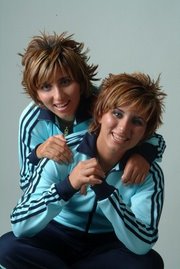


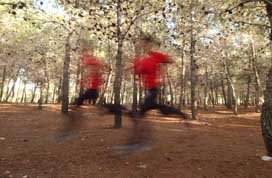
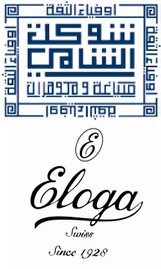
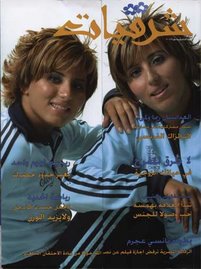
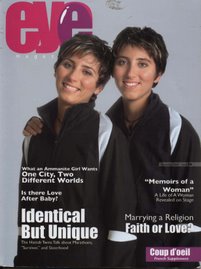




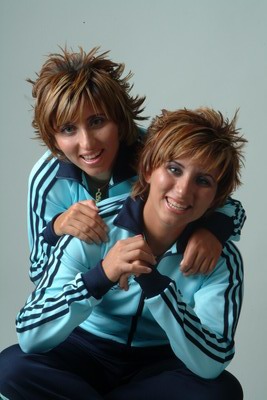
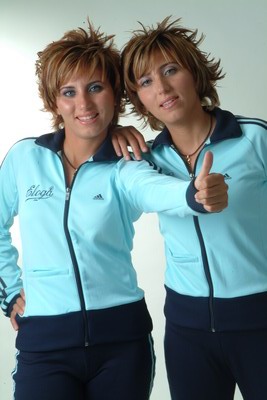



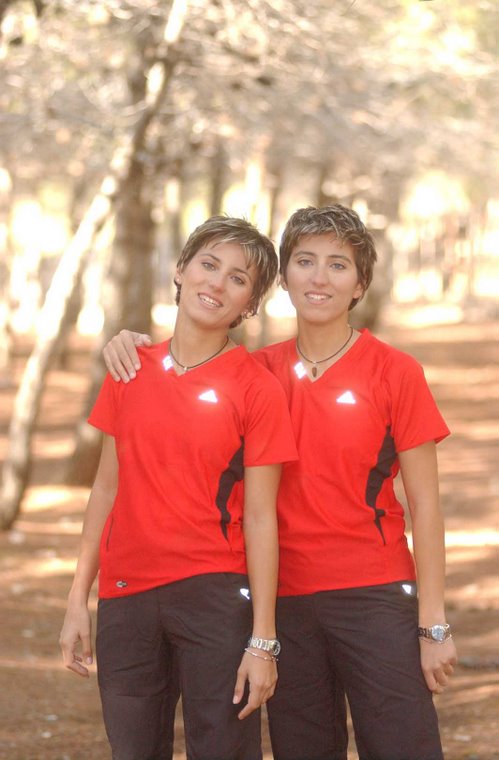
No comments:
Post a Comment